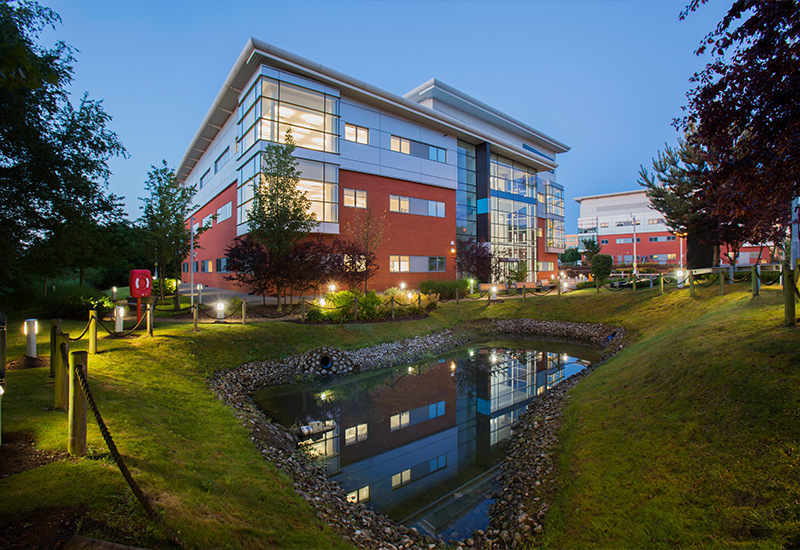
Innovation Campuses: Unlocking Scalable Growth for Startups and Strategic Deal Flow for Investors
In the evolving landscape of entrepreneurship and technology, innovation campuses have become critical engines of growth, bringing together infrastructure, mentorship, capital, and collaboration under one strategic vision. These campuses are not just buildings; they are curated ecosystems designed to accelerate the success of startups and SMEs while offering investors consistent access to high-quality, investment-ready businesses.
Across the UK and beyond, a growing number of these innovation hubs are playing a transformative role in regional economic development and global innovation. Among them are Babraham Research Campus, Engine Shed, Harwell Science and Innovation Campus, Innovation Birmingham, Sci-Tech Daresbury, and Plexal—each offering a distinct value proposition for high-growth businesses and their backers.
Having worked directly with Plexal and its MD, Andrew Roughan, I’ve seen firsthand the power of a purpose-built innovation campus that blends cybersecurity, infrastructure, and government tech in the heart of London. Plexal’s ability to foster collaboration between high-potential startups and national government departments creates one of the most relevant and future-facing innovation platforms in the country.
More recently, having moved further north, I’ve had the opportunity to become more actively involved with Sci-Tech Daresbury, where the quality and ambition of its business community is equally compelling. I’ve worked alongside John Leake, Business Growth Director, and Paul Treloar, Head of Business Support—both of whom are dedicated to enabling meaningful outcomes for founders and investors alike. My close colleague and friend Richard Lydon has also been hugely active in this community, and his experience and insight have only deepened my appreciation for what this regional powerhouse is building.
Examples of Leading UK Innovation Campuses
Babraham Research Campus (Cambridge): A leader in life sciences innovation, Babraham offers cutting-edge lab facilities, commercialisation support, and access to the Cambridge biotech cluster. It has become a magnet for venture-backed health and biotech companies. Notably, Crescendo Biologics, a cancer therapeutics firm, scaled from concept to significant funding rounds on campus.
The Engine Shed (Bristol): A regional innovation hub linking academia, industry, and finance, Engine Shed is central to the West of England’s startup ecosystem. Its focus on inclusive growth and regional innovation attracts tech and creative companies alike. Successful alumni include Ultraleap, which began life in the Bristol ecosystem and now leads the world in mid-air haptics and gesture recognition.
Harwell Science and Innovation Campus (Oxfordshire): With a concentration of space, clean energy, and life sciences innovators, Harwell is one of the UK’s largest research-driven ecosystems. It benefits from deep public-private collaboration and a steady influx of institutional capital. Companies like OxSyBio, now part of 3D bioprinting pioneers FabRx, leveraged Harwell’s unique access to technical infrastructure and talent.
Innovation Birmingham Campus: A Midlands-based tech hub that supports digital companies with growth programmes, workspace, and university links. Operated by Bruntwood SciTech, it is part of a wider network of innovation-focused real estate assets. Whisk.com, which developed a smart food platform and was later acquired by Samsung, emerged from this ecosystem.

Sci-Tech Daresbury
Sci-Tech Daresbury (Cheshire): A science and technology campus supporting companies across sectors like engineering, health tech, and clean energy. It provides access to STFC’s Daresbury Laboratory, business support programmes, and links to regional and national investor networks. Notable alumni include Perfectus Biomed, a microbiological testing firm now working internationally, and ORCHA Health, which has become a global leader in digital health app evaluation.

Andrew Roughan (MD Plexal)
Plexal (London): Based at Here East in London, Plexal supports startups in cybersecurity, mobility, and digital infrastructure. It offers accelerators, public sector pilot opportunities, and access to national security and government innovation networks. Successful residents include TrueCircle, an AI startup tackling the circular economy, and Synalogik, a data fusion platform working with law enforcement and regulators.
Each of these campuses demonstrates how place-based innovation strategies can unlock local economic growth while plugging startups into global investment and talent pipelines.
The Ecosystem Advantage: Why Innovation Campuses Work
The value of these environments goes beyond office space:
- Integrated support: Startups can access commercialisation experts, legal and IP advisors, grant writers, and financial modelling experts all within the campus.
- Network density: Co-location with other innovators, researchers, and funders fosters peer learning and serendipitous partnerships.
- Credibility uplift: Being part of a recognised innovation campus lends validation in the eyes of investors and grant providers.
- Access to talent: Many campuses partner with universities or run embedded placement programmes that connect businesses to highly-skilled graduates and researchers.
- Investor matchmaking: From demo days to strategic introductions, campuses act as filters for high-quality deal flow, reducing friction for both founders and investors.
These benefits also make a difference to policy. Innovation campuses are increasingly recognised by government as ideal channels for distributing grant funding, piloting new technologies, and accelerating strategic national priorities—from decarbonisation to digital infrastructure.
The Investor Perspective: Scouting with Confidence
For early-stage investors, innovation campuses provide:
- Pre-vetted deal flow with strong commercial and technical foundations
- Ongoing visibility into company progression and pivots
- Lower due diligence costs due to transparency and structured support
- Opportunities to co-invest with public sector and institutional capital
This alignment between investor needs and founder growth unlocks efficiencies and reduces friction in early-stage capital markets. Investors are increasingly embedding themselves into these ecosystems to stay ahead of market trends and source deals earlier.
Looking Ahead
The innovation campus model is expanding globally, with countries replicating successful templates like those found across the UK. As governments, universities, and private investors coalesce around place-based innovation, these campuses will be the epicentres of economic transformation.
For founders, the message is clear: don’t go it alone. For investors, it’s a reminder that some of the most exciting opportunities are growing not just in boardrooms or pitch decks, but in the curated environments where innovation is built daily.
Innovation campuses are more than hubs—they are launchpads.





